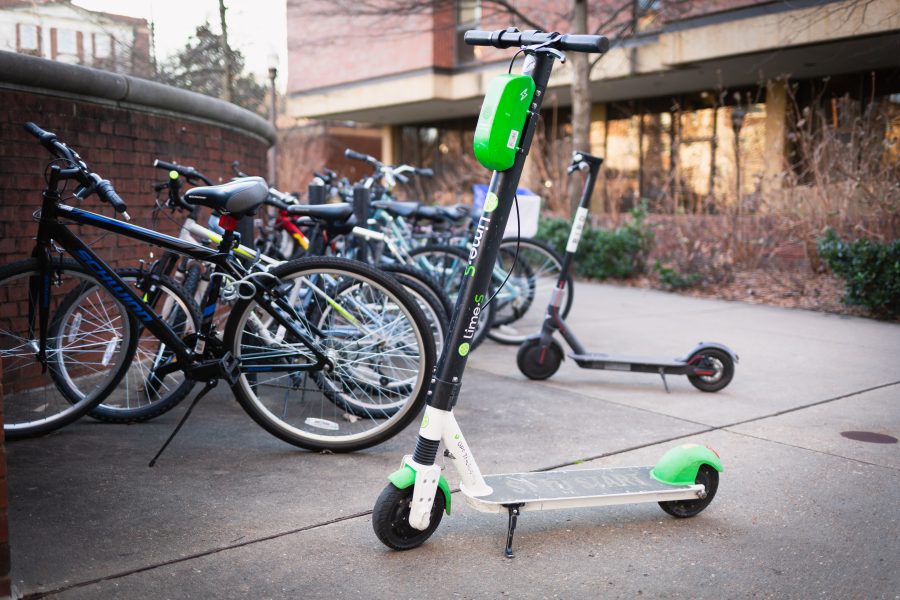As children, scooters may have caused us hurt ankles and bruised knees, but legislators in Tennessee at both the state and local level are beginning to draft legislation acknowledging the more severe safety hazards e-scooters may pose.
On Feb. 11, Tennessee state legislation introduced a bill mandating that popular e-scooter companies, such as Bird, implement new safety controls on their dockless e-scooters. The bill also classifies scooters as being subject to the same rules as bicycles.
Senator Steve Dickerson and Representative Jason Potts sponsored the bill. The specific terms of the bill include a 15 mile per hour speed limit on scooters. Also, users would no longer be allowed to have more than the intended number of riders on a scooter at a time. The legislation would require the scooters to have a red light or reflector on the back, a white light on the front, and brakes.
Safety concerns also drove Senator Katrina Robinson and Representative Mike Stewart to file a bill Feb. 6 that addresses the safety of minors who ride e-scooters without parental consent and could be injured. The bill provides that companies providing dockless electric scooter rentals to the public must accept full liability for any injury incurred by a minor, regardless of parental consent or any violation of the rules of the road.
Representative Stewart expressed his concerns regarding the management behind these dockless scooter providers. Notably, he questions how these devices came to market with limited safety controls, he said.
“It is a complete outrage that these companies are profiting over the ability to leave these scooters around where minors can pick them up without parental consent,” he said. “These companies must be fully liable and know that the full weight of Tennessee law will come down on them if a kid is injured.”
Not only is legislation being added at the state level, but Metropolitan Nashville government is also currently considering a bill requiring all electric scooters to be docked, which if approved, would go into effect in January of 2020.
If measures on both the state and local level are passed, they could potentially impact Vanderbilt. As various bills move through the legislatures, Vanderbilt will continue to monitor their path before implementing regulations on campus, the university told The Hustler.
Vanderbilt’s FutureVU initiatives, in addition to beautifying campus, promote the use of dockless or electric scooters on campus in order to diversify transportation options. Efforts are ongoing to ensure the safety of students, as outlined in a Feb. release from the university.
The majority of Vanderbilt’s scooter regulations involve keeping pedestrian walkways clear and accessible, according to the FutureVU website. For example, scooters may not be charged in university buildings and they should be parked in designated parking locations only. There are also a number of university dismount zones around campus where riders must walk their scooters, including the 21st Avenue pedestrian bridge, Rand wall, and Medical Center Plaza.
Specifically, if passed, Nashville’s legislative efforts to mandate that all scooters be docked would support FutureVU’s current efforts to only park the devices in their designated locations.
First-year Mackenzie Moore said that it’s not unusual to see e-scooters carelessly flung on sidewalks around campus. Yet, while she feels that while these new rules may be necessary, they will take away much of the appeal of e-scooters for students. “It’s going to ruin the fun of leaving the scooters wherever,” she said. “If people were just a little more considerate about where they park, it would do much more good than strictly assigned docking places.”









